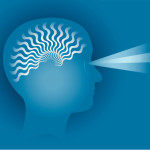Neurology and Neurosurgery
 Neurology in layman’s terms may refer to the in-depth study of the orchestra in your brain that focuses on the health of your brain. Of course, neurologists and neurological surgeons are not the conductors of the orchestra in your brain. In fact, their sophistication and expertise in this branch of medicine extends beyond the delivery of a musical masterpiece, some may say. To put it simply, your brain works like a group of musicians in an orchestra. Yet, there are 100 billion neurons that are each linked to up to 10,000 synaptic connections in the cerebral cortex of the brain. Each neuron communicates by way of fibers called axons which deliver pulse signals to recipient cells that perform specific brain and bodily activities. Much like a symphony, the brain performs a harmony with rhythmic arrangements, dissolving configurations, and flashing sub-patterns that flow precisely in and out using highly calculated measurements. Always expressive when healthy, every cell in your brain is part of a special network that contributes to your quality of life every day.
Neurology in layman’s terms may refer to the in-depth study of the orchestra in your brain that focuses on the health of your brain. Of course, neurologists and neurological surgeons are not the conductors of the orchestra in your brain. In fact, their sophistication and expertise in this branch of medicine extends beyond the delivery of a musical masterpiece, some may say. To put it simply, your brain works like a group of musicians in an orchestra. Yet, there are 100 billion neurons that are each linked to up to 10,000 synaptic connections in the cerebral cortex of the brain. Each neuron communicates by way of fibers called axons which deliver pulse signals to recipient cells that perform specific brain and bodily activities. Much like a symphony, the brain performs a harmony with rhythmic arrangements, dissolving configurations, and flashing sub-patterns that flow precisely in and out using highly calculated measurements. Always expressive when healthy, every cell in your brain is part of a special network that contributes to your quality of life every day.
 Neurology and Neurosurgery Forums: From brain fitness to anti-disability stroke shots, there are some informative tips that may help preserve your quality of life for many years to come.
Neurology and Neurosurgery Forums: From brain fitness to anti-disability stroke shots, there are some informative tips that may help preserve your quality of life for many years to come.
Your Health Access Alert: There are only 3700 Neurosurgeons in the U.S. Not every U.S. hospital has a neurosurgeon available. Talk about Quality Care? Seven years of continuing education for surgical expertise. Learn more below.
It’s OK to Have Age-Related Memory Loss?
Enhance a Relationship with a Person Who Has Dementia: Benes for You and Them
Learn More about Brain Injuries, including Concussion Risks
GET ImPACT, www.impacttest.com, for all sports players! This Immediate Post-Concussion Assessment and Cognitive Test offers baseline brain data so if and when concussion strikes, you or your child can be diagnosed and treated with the standard of care you deserve to prevent long term damage.
There are over 600 medical conditions that relate to Neurology. The good news is that Neurologists and Neurosurgeons receive very extensive training in many aspects of medicine to deliver some very optimistic resolutions for individuals in need. Some of the more common medical conditions of the brain are, as follows.
ADD or ADHD: Attention Deficit Disorder
Spinal Cord Disorders and Injuries
Neurological Treatments
As you might imagine, neurological treatments are as varied as the individuals requiring treatment. Physical examinations, blood and laboratory tests, X-rays, and MRI’s are some of the fairly standard diagnostic tests available, but Neurologists and Neurosurgeons may have an arsenal of more advanced treatment techniques and equipment at their disposal. From 3D brain-mapping technology for the detection of tumors, to robotics that offer a painless approach for tumor treatment, and Deep Brain Simulation for relief from Parkinson’s Disease, select Neurologists and Neurosurgeons utilize some of the most advanced medical technology in all medical specialties with the goal to optimize care for those they serve.
 The Basics: Neurologists and Neurosurgeons
The Basics: Neurologists and Neurosurgeons
Neurologists and neurosurgeons in North America are among the most extensively trained physicians in medical science.
Neurologist Defined
Neurologists initially earn their medical degree followed by a minimum one year internship in neurology, three to four years of residency training, and additional training in specific areas, including: central, peripheral and autonomic areas—along with affected tissue, muscle, and blood vessels. Neurologists may be brought in to consult with people suffering from Traumatic Brain Injury, MS, neurodegenerative diseases, ALS, Strokes, infectious diseases, Cerebral Palsy, metabolic disorders, hormonal disorders, and a wide range of neuropsychiatric and neurochemical conditions, including: Bipolar Disorder, Schizophrenia, Parkinson’s Disease, Alzheimer’s Disease, Huntington Disease, Vascular Dementia, Post-Traumatic Stress Disorder from war or crisis, Clinical Depression, as well as, neuro-rehabilitation issues. Accordingly, Neurologists and Neurosurgeons may work together with or refer individuals to Psychiatrists, Orthopedic Surgeons, Vascular focused Surgeons, or other related medical professionals. Some Neurologists may sub-specialize in other areas, such as, Neuropsychiatry for Traumatic Brain Injury.
Neurosurgeon Defined
Neurosurgeons earn their degree in medicine and continue on with similar neurological training AND extensive neurosurgery training, including: a minimum one year internship program and up to seven years of neuro-surgical training relating to chemistry, physiology, radiology, pathology, and the technical aspects of surgery for the brain, spinal cord and peripheral nerves, Neurotrauma, Neoplasmas (tumors), and vascular problems, such as, Strokes, Blood Vessel Repair, Brain Aneurism, Spinal Cord Compression, Spinal Degenerative Diseases, Blood Clots and the like.
Will Insurance Cover a Neurologist or Neurosurgeon and Prescribed Treatments?
In an emergent situation, such as, a Traumatic Brain Injury or Stroke, it is extremely important to call 911 and remain still until you are routed to the nearest hospital with the assistance of medical personnel. It is extremely important for stroke victims to have the opportunity for a swift examination to identify if they are a candidate for a clot blocking shot that may diminish long term disabilities by one third. Once you arrive at the hospital, hospital personnel will evaluate your health insurance information and payment options will be presented to you at a later date.
If you are interested in consulting with a Neurologist or a Neurosurgeon, it is wise to follow your instincts. Generally speaking, it is advised to consult with your insurance company and the office of the Neurologist or Neurosurgeon to make sure that appropriate coverage is available to take care of visits and treatments. It’s not wise to delay care for any reason. In some cases, such as if you have an HMO insurance plan, the individual must see a primary care physician first for a referral to a board certified Neurologist or Neurosurgeon unless it is an emergency. It is best to know what your medical insurance covers prior to being ill. When you contact a Neurologist or Neurosurgeon’s office, you can explain your insurance situation and work with their internal personnel to assist you.
Neurology and Neurosurgery are far-reaching medical specialties devoted to treating people with troubling medical and psychiatric conditions. Neurologists and Neurosurgeons share in the goal for helping people live more fully and completely. So, have no fear, contact a neurologist or neurosurgeon today if you feel you need to, but be aware that select U.S. neurosurgeons may not offer the procedure you are in need of due to select health access issues. Thus, you may need to seek out an alternative.
It is important to recognize that all information contained on this website cannot be considered to be specific medical diagnosis, medical treatment, or medical advice. As always, you should consult with a physician regarding any medical condition.
Your Health Access disclaims any liability for the decisions you make based on this information.






